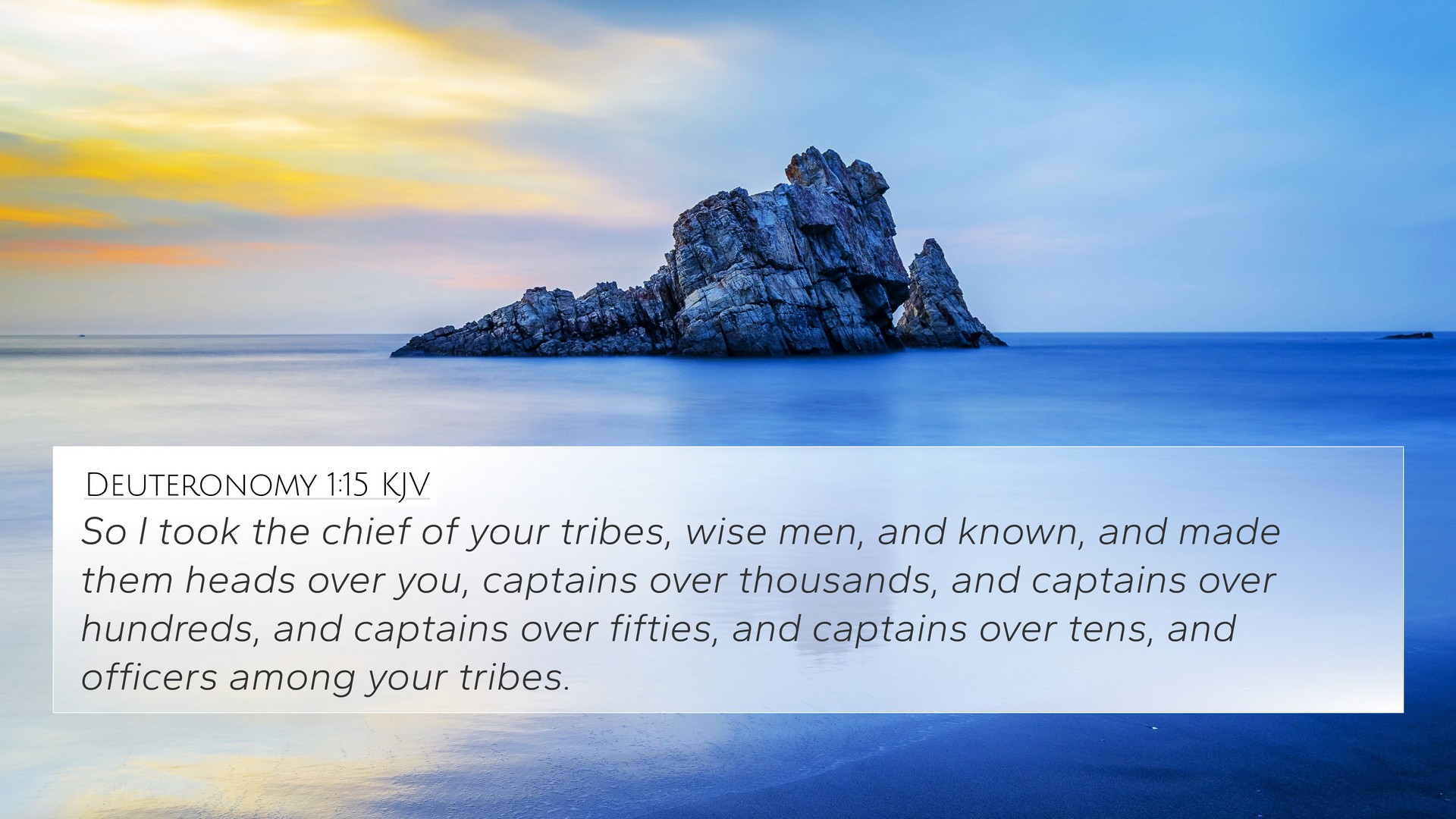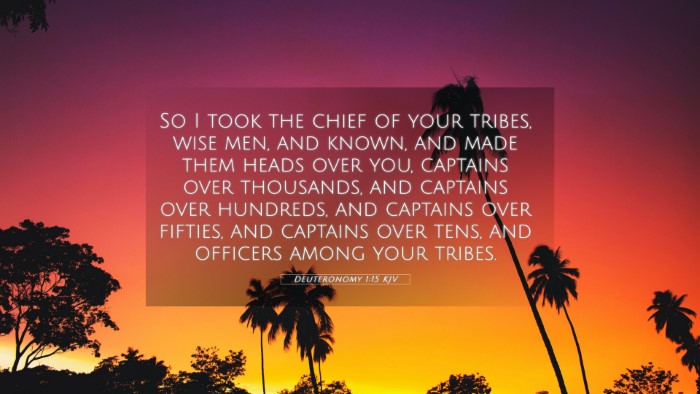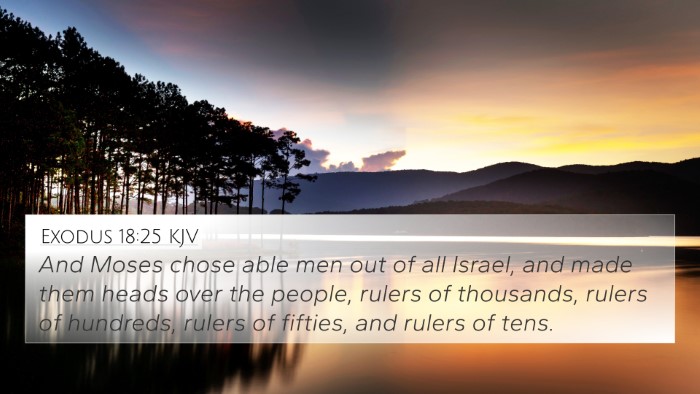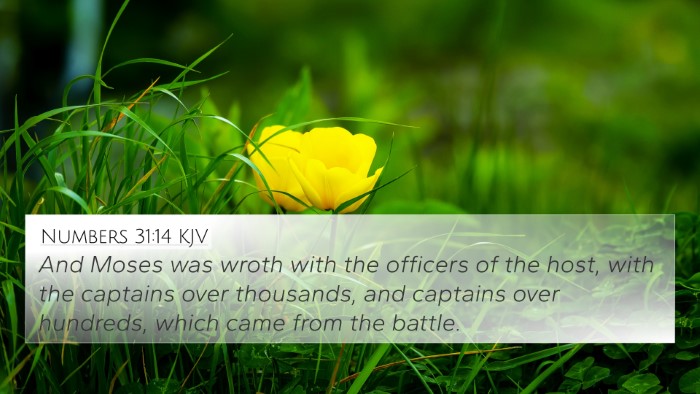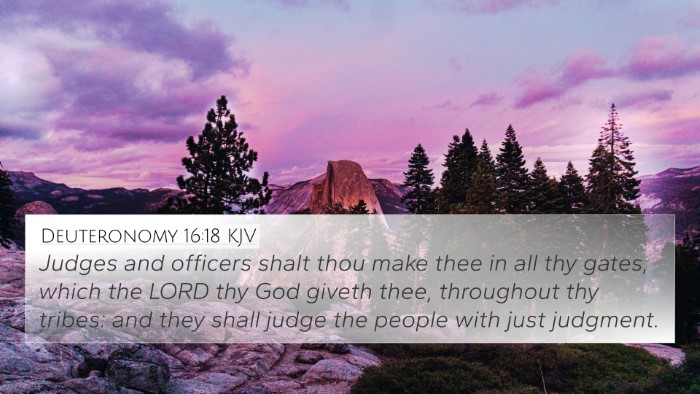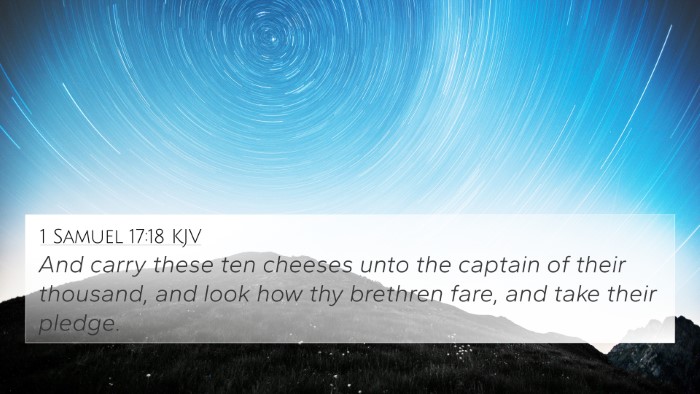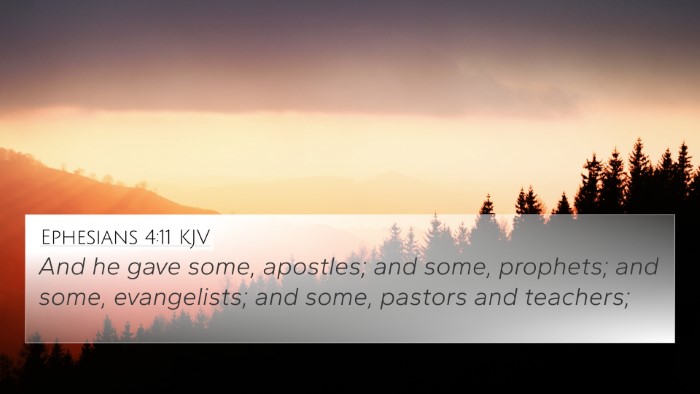Understanding Deuteronomy 1:15
Verse Text: "So I took the heads of your tribes, wise men, and known, and made them heads over you, captains over thousands, and captains over hundreds, and captains over fifties, and captains over tens, and officers among your tribes." (Deuteronomy 1:15)
Summary of Meaning
The verse serves as a pivotal moment in the leadership structure established by Moses during the Israelites' journey through the wilderness. It emphasizes the importance of wise and capable leadership among the people.
Insights from Public Domain Commentaries
-
Matthew Henry:
Henry notes that the choice of leaders was crucial for guiding and governing the Israelite community. He underscores the necessity of having heads of families and tribes who are not only wise but also known for their integrity and ability. This selection process was set to promote order and efficiency among the people, ensuring that the burdens of leadership were distributed.
-
Albert Barnes:
Barnes elaborates on the organizational structure introduced by Moses. He points out that the captains of thousands, hundreds, fifties, and tens serve to maintain stability and prevent chaos. The orderly division aims to facilitate the administration of justice and military matters, creating a framework wherein every individual would receive attention and support based on their assignment.
-
Adam Clarke:
Clarke provides a detailed analysis of the term "wisdom" in this context, suggesting that it implies not just intellectual capability, but also experience and a sense of moral responsibility. This wisdom is essential for leaders as they are tasked with navigating the complex challenges of leading a large group of people through uncharted territories.
Cross-References and Thematic Connections
Deuteronomy 1:15 can be linked to various other scriptures, illustrating the theme of leadership and governance in the Bible:
-
Exodus 18:21: "Moreover, you shall select from all the people able men, such as fear God, men of truth, hating covetousness; and place such over them to be rulers of thousands, rulers of hundreds, rulers of fifties, and rulers of tens."
-
Numbers 11:16: "So the LORD said to Moses: 'Gather to Me seventy men of the elders of Israel, whom you know to be the elders of the people and officers over them; bring them to the tabernacle of meeting, that they may stand there with you.'"
-
2 Timothy 2:2: "And the things that you have heard from me among many witnesses, commit these to faithful men who will be able to teach others also."
-
Acts 6:3: "Therefore, brethren, seek out from among you seven men of good reputation, full of the Holy Spirit and wisdom, whom we may appoint over this business."
-
Psalms 78:72: "And David shepherded them with integrity of heart; with skillful hands he led them."
-
Proverbs 11:14: "Where there is no counsel, the people fall; but in the multitude of counselors, there is safety."
-
Proverbs 29:2: "When the righteous are in authority, the people rejoice; but when a wicked man rules, the people groan."
-
James 1:5: "If any of you lacks wisdom, let him ask of God, who gives to all liberally and without reproach, and it will be given to him."
-
1 Peter 5:2: "Shepherd the flock of God which is among you, serving as overseers, not by compulsion but willingly, not for dishonest gain but eagerly."
Significance of Leadership in Scripture
This verse highlights the necessity for wise, ethical leadership within the context of communal life, reflecting broader Biblical themes concerning governance and spiritual oversight. It reiterates the need for capable leaders who can guide others while embodying qualities such as wisdom, humility, and moral integrity.
Applying the Lesson of Deuteronomy 1:15
In modern practical terms, the designation of leaders in various forms—whether in families, workplaces, or communities—continues to be vital. Valuable lessons regarding the characteristics of effective leadership from this verse can be infused into contemporary settings where guidance is needed.
Concluding Thoughts
The wisdom shared through Deuteronomy 1:15 transcends its immediate context, offering insights applicable to various relational dynamics. Through careful examination and cross-referencing with related scriptures, one can gain a deeper appreciation for the intricate tapestry of Biblical teachings on leadership, governance, and moral responsibility.
